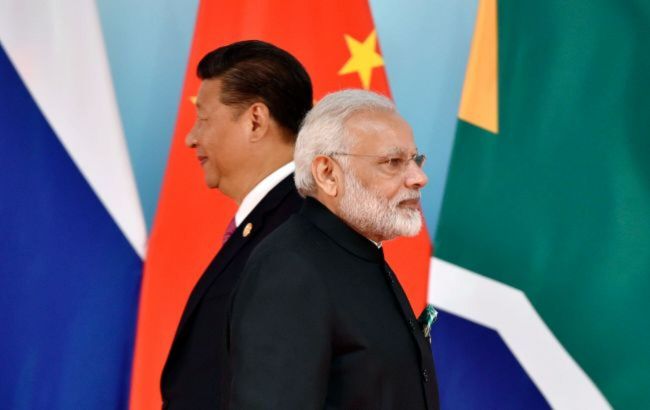Signal to Trump or coincidence? Modi to skip Asia's top summit of year
 Photo: Indian Prime Minister Narendra Modi and Chinese leader Xi Jinping (Getty Images)
Photo: Indian Prime Minister Narendra Modi and Chinese leader Xi Jinping (Getty Images)
Indian Prime Minister Narendra Modi has unexpectedly declined to attend the ASEAN summit in Kuala Lumpur, where he was expected to meet with US President Donald Trump, according to Bloomberg.
Indian Prime Minister Narendra Modi announced that instead of attending the ASEAN summit in person, he will join the event online.
According to Malaysian Prime Minister Anwar Ibrahim, the decision is related to the celebration of Diwali, which is currently taking place in India. Anwar said he had spoken with Modi by phone and expressed understanding for his decision, extending holiday greetings to the Indian people.
However, Modi’s refusal to attend the summit coincides with growing tensions between New Delhi and Washington.
Local media reports that Foreign Minister Subrahmanyam Jaishankar is likely to represent India at the meeting. Experts believe Modi’s absence may not only be a gesture of respect for the festival but also a diplomatic signal amid trade pressure from the United States.
For years, India has been one of Washington’s key partners in balancing China’s influence. Yet, the country is now increasingly asserting its strategic autonomy, seeking to avoid being viewed merely as a subcontractor in US foreign policy.
While the economic and strategic foundations of the India-US partnership remain intact, personal relations between Modi and Trump have grown noticeably cooler.
About ASEAN Summit in Kuala Lumpur
The ASEAN Summit is held every two years by the Association of Southeast Asian Nations, which includes Malaysia, Indonesia, Singapore, Thailand, the Philippines, Brunei, Vietnam, Laos, Myanmar, and Cambodia.
The gathering often extends into broader sessions with leaders from major powers such as the US, China, and EU countries. Discussions cover economic, political, security, and socio-cultural development in the region.
Meanwhile, following Western sanctions and bans on Russian oil imports, India has become the largest buyer of Russian crude, purchased at discounted prices.
In response, Donald Trump imposed a 50% tariff on Indian exports, accusing New Delhi of excessive trade with Moscow.
However, recent reports suggest that India is gradually reducing its reliance on Russian oil. The country’s energy giant Reliance Industries has begun increasing purchases of Middle Eastern crude and plans to expand its orders further in the coming months.

